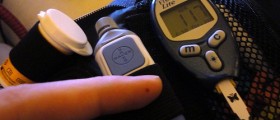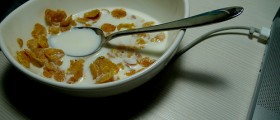
Dietary fiber is the indigestible portion of plant foods. Dietary fiber is very important to support bowel regularity, to maintain normal cholesterol levels in the blood, to keep the blood sugar levels at the optimum and to help one get rid of the excessive fat. It seems like dietary fiber works on many different levels, providing all sorts of health benefits. Therefore, it shouldn’t come as a surprise to hear every now and then “Eat more fiber!” Are you getting enough of fiber through your daily diet? You’ll find an easy answer by monitoring the normal processes in the body. If you frequently suffer from constipation, or even hemorrhoids related from straining from constipation, then you probably need to increase your daily intake of fiber. High blood sugar levels and high cholesterol levels are also good indicators that one needs to change the dietary habits.
Health benefits of fiber
There are two main types of dietary fiber: soluble and insoluble. Soluble fibers can help to reduce blood cholesterol levels and to restore normal blood glucose levels. Insoluble fibers, on the other hand, promote regular bowel movements. Insoluble fiber is metabolically inert, but it absorbs a lot of fluids and eases defecation as it moves through the digestive system.
However, even the insoluble fiber lowers the cholesterol levels by reducing the absorption of cholesterol. Soluble fiber, on the other hand, may normalize blood sugar levels by slowing the rate at which food leaves the stomach. This way, the blood sugar is slowly released and the absorption of glucose is taking place in controlled stages, preventing the high peaks in blood sugar levels. This also promotes the feelings of satiety and fullness, preventing the overeating and weight gain.
Deficiency in dietary fiber is even associated with severe health problems such as colon cancer, obesity and high cholesterol levels.
Sources of dietary fiber
Plants are sources of dietary fiber. In some cases, these plants are even used to make supplements or to enrich various processed foods with fiber. Soluble fibers are found in different legumes, oats, rye, chia, barley, prunes, plums, berries, bananas, apples, pears, broccoli, carrots, sweet potatoes, onions, and psyllium seed husk.
Good sources of insoluble fiber include whole grain foods, wheat, corn, nuts and seeds, potato skins, flax seed, vegetables like green beans, cauliflower, zucchini, celery, fruits like avocado and bananas, and skins of prunes and tomatoes.
It is estimated that North Americans consume less than 50% of recommended daily dosage of dietary fiber, essential for good health. Adults should consume 20–35 grams of dietary fiber per day.

















Your thoughts on this
Loading...